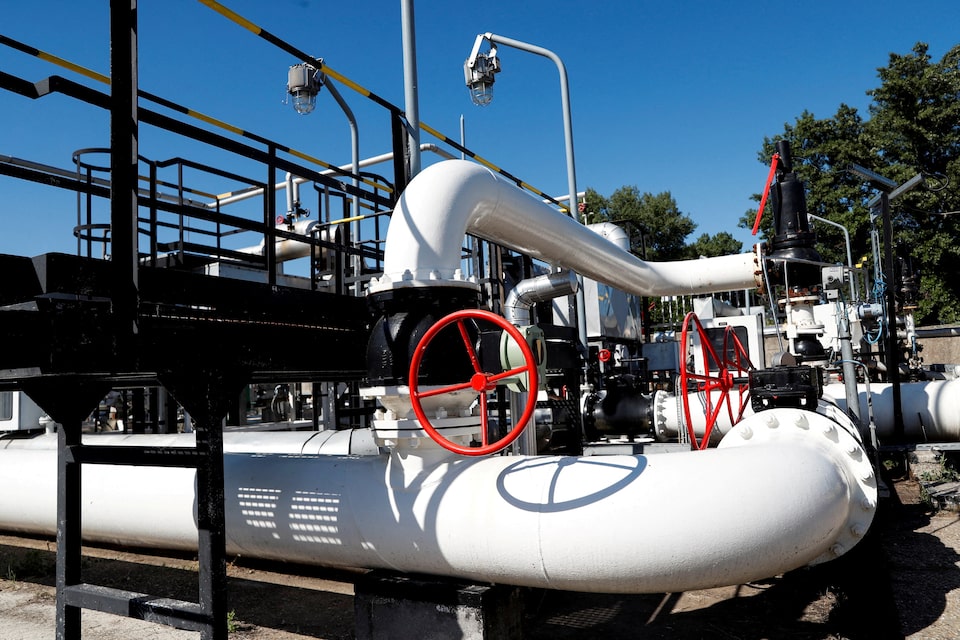Poland Urges EU to End Russian Oil Imports by 2026.In a bold and assertive move, Poland has called on the European Union to end all imports of Russian oil by the year 2026, intensifying pressure on Brussels to take a stronger stand against Russia’s ongoing aggression in Ukraine. The announcement comes as Europe grapples with its reliance on Russian energy supplies and seeks alternatives amid the ongoing geopolitical crisis.Poland’s demand is seen as part of a broader effort to decouple Europe from Russia’s economic influence, especially following the invasion of Ukraine in 2022. Polish officials argue that reducing dependence on Russian oil is not only crucial for national security but is also a step toward fulfilling Europe’s moral and strategic obligations to support Ukraine’s fight for sovereignty.
Poland Urges EU Position on Russian Oil:

A Call for SolidarityPoland has long been a vocal critic of the EU’s energy dependency on Russia. Warsaw has led the charge in calling for stricter sanctions against Moscow and has consistently pushed for European unity in severing ties with Russian energy exports. In recent months, Poland has advocated for an accelerated transition to alternative energy sources, stressing that reliance on Russian oil is no longer just a matter of economic policy but a matter of security.The call for a full phase-out of Russian oil by 2026 comes as part of Poland’s broader vision for European energy independence. Deputy Prime Minister and Minister of State Assets, Jacek Sasin, voiced his country’s position, stating that “Europe must stop financing Russia’s war machine” and that “the sooner we rid ourselves of Russian energy dependence, the better.”
The EU’s Energy Landscape:
Divided on the IssueWhile Poland’s stance is clear, the European Union itself is divided on how quickly it can phase out Russian oil and other energy imports. Some EU member states, particularly those in Central and Eastern Europe, are supportive of Poland’s initiative, citing the need to sever economic ties with Moscow. However, other nations, including Germany and Hungary, have expressed concerns over the economic ramifications of such a rapid transition.Germany, for instance, relies heavily on Russian energy imports, especially natural gas, and has been cautious about taking steps that might destabilize its energy supply. Some EU members have also warned that phasing out Russian oil too quickly could lead to energy shortages or significant price increases, disproportionately impacting the most vulnerable populations.
“Sanae Takaichi’s Bold Step: 3 Reasons Her LDP Leadership Bid Could Reshape Japan’s Politics”
The EU’s Response and Strategic Alternatives
In response to Poland’s call, the European Commission has reiterated its commitment to reducing dependence on Russian energy but has made it clear that the timeline for such a transition needs careful consideration. Ursula von der Leyen, President of the European Commission, acknowledged the importance of energy independence from Russia but emphasized the need for strategic planning to ensure that Europe’s energy security remains intact.The EU has already taken significant steps to reduce its reliance on Russian oil, with sanctions targeting Russian energy exports and efforts to diversify energy sources. Alternative suppliers such as the United States, Norway, and oil-producing nations in the Middle East have increasingly filled the gap left by Russian oil. Furthermore, the EU is doubling down on renewable energy investments, aiming to accelerate the transition to a green energy future.However, experts warn that transitioning away from Russian oil within such a short time frame could present substantial challenges. Countries with less-developed energy infrastructures or greater dependence on Russian exports may struggle to find sufficient alternatives, and the global oil market could face significant disruptions as demand shifts.
A Geopolitical and Economic Imperative
Poland’s push for an EU-wide ban on Russian oil imports highlights the broader geopolitical and economic struggle currently playing out in Europe. For many EU nations, reducing dependence on Russian energy is a crucial part of countering Russian aggression and weakening its economic base. However, as the war in Ukraine continues, the EU faces the difficult task of balancing national energy security, economic stability, and political unity.Poland’s advocacy for a 2026 target represents not only a bold political stance but also a reflection of the growing sentiment in Central and Eastern Europe that stronger action is needed to confront Russia. While the rest of the EU may not immediately follow Poland’s aggressive timeline, the call for energy independence will continue to shape discussions around Europe’s energy policy in the years to come.In the wake of Poland’s proposal, the EU’s energy future remains uncertain, but one thing is clear: as the geopolitical landscape shifts, Europe will have to make tough decisions about its energy sources, alliances, and commitments to supporting Ukraine in its fight for independence. Whether or not the EU adopts Poland’s 2026 target, the continent’s energy future is on the brink of major change, and the clock is ticking.